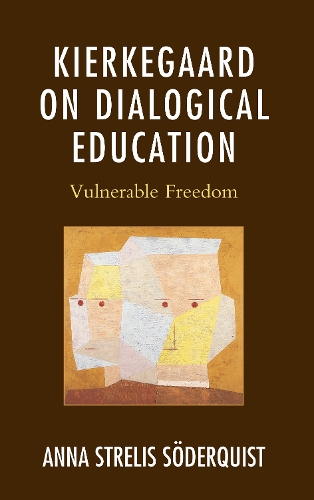
Kierkegaard on Dialogical Education: Vulnerable Freedom
(Hardback)
Publishing Details
Kierkegaard on Dialogical Education: Vulnerable Freedom
By (Author) Anna Strelis Soderquist
Bloomsbury Publishing PLC
Lexington Books
14th July 2016
United States
Classifications
Professional and Scholarly
Non Fiction
Philosophy
198.9
Physical Properties
Hardback
180
Width 161mm, Height 233mm, Spine 19mm
449g
Description
Kierkegaard on Dialogical Education: Vulnerable Freedom examines a unique conception of freedom that underscores the productive role of human vulnerability, as found in the work of Sren Kierkegaard. Anna Strelis Sderquist uncovers Kierkegaards method of indirect communication as a formative and dialogical approach to education that guides a person in becoming not only free and independent, but also receptive and empathetic. This approach bestows upon a human being the dignity that comes from being both capable and humble. It emphasizes the need for trust and courage alike in our dialogical relations, freeing us to receive and respond to the other both in our need and through our own choosing. Freedoms secret is that it is at the same time self-empowered and vulnerable, self-giving and receptive, independent and dependent. Kierkegaards method, in both form and content, hinges upon the narrativity of human experience. No human being is immune to the seductive force of stories. Kierkegaard recognizes the power of a story to captivate and to change us, to empower and to humble us, and he makes use of them as formative teachers with whom we enter into dialogue. Through its examination of indirect formation in Kierkegaard through poetry and storytelling, Kierkegaard on Dialogical Education explores the reaches and limits of narrative imagination and inquires into the dialogical and narrative struggle inherent in the formation of identity. This book will be of interest to philosophers and educators, as well as those who meet at the crossroads of philosophy, education, and art.
Reviews
Freedom, anxiety, and possibility were key terms in existentialisms account of being human. But where the existentialists saw such categories as entwined with the necessarily godless and self-assertive character of human life, this new study by Anna Strelis Sderquist offers a more complex, subtle, and ultimately persuasive view. As she tells the tale, these categories are used by Kierkegaard as integral elements in the process by which we come to ourselves through a humble and courageous readiness that involves openness to the other that is essentially dialogical. A Kierkegaardian education therefore leads not (as many have thought) to isolation and despair, but to a realistic and vulnerable, yet hopeful, self-knowledge and self-commitment. -- George Pattison, University of Glasgow
Though not concentrated in any particular text, Kierkegaards writings are rife with reflections on the philosophy of education. In a book as rigorously argued as it is creative, Anna Strelis Sderquist deftly presents Kierkegaard as educator, but much more than that, she generates beguiling possibilities for applying Kierkegaards pedagogical prescriptions. Kierkegaard was hard to please, but I am sure that this is one interpretation of his work that he would have smiled upon. -- Gordon Marino, St. Olaf College
Author Bio
Anna Strelis Sderquist is a researcher at the Sren Kierkegaard Research Center, University of Copenhagen.
